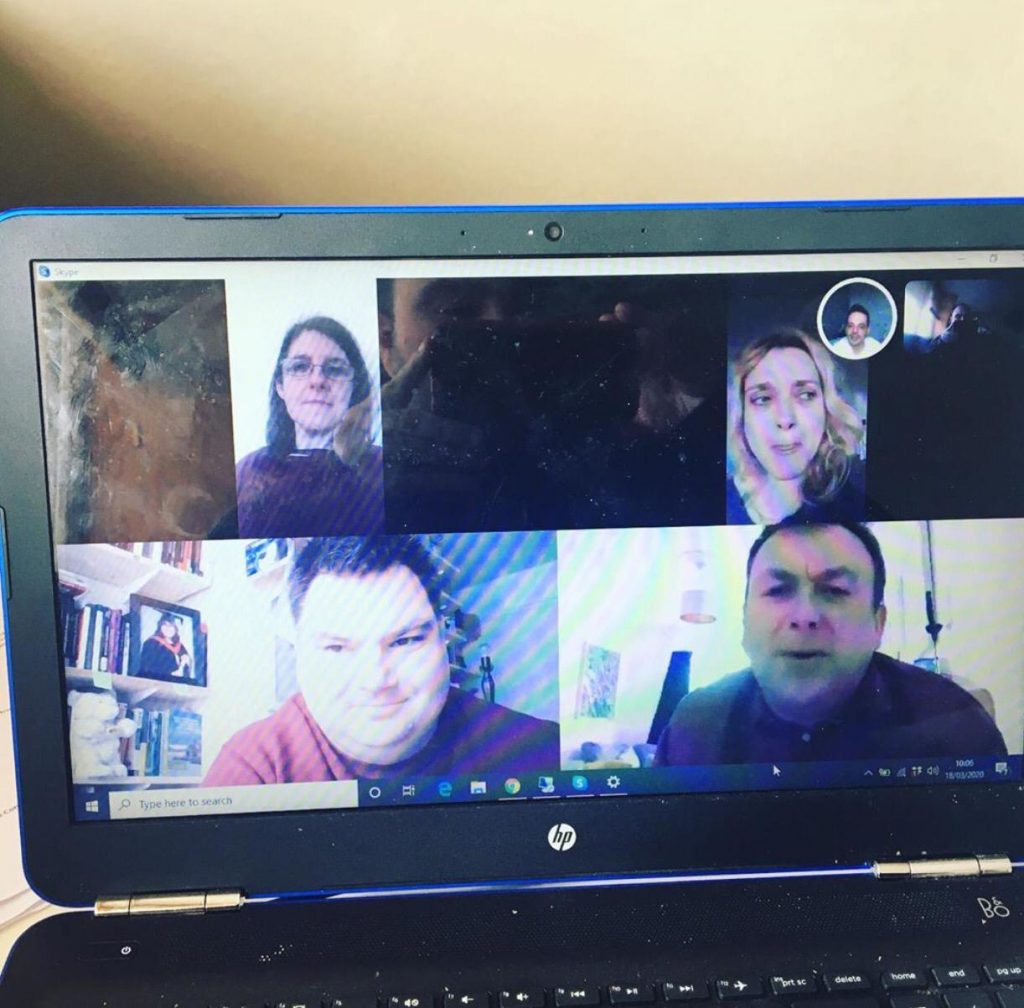Dr Laura Cashman reflects on our first month of online delivery
Exactly a month ago, on 17 March, the Politics and IR team met for one last hurried lunch-meeting in the Priory Cottages. Then we packed up what we hoped (wrongly!) would be our most useful belongings before the lock down began. Since then we have been grappling with the demands of delivering our teaching alongside the other challenges of living in isolation. Some of us have been ill. Most of us have been simultaneously ‘homeschooling’ our children and caring for vulnerable family members. All of us have faced a steep learning curve as we become familiar with the new forms of technology required to work remotely, teach remotely and communicate with each other.
We work incredibly hard to deliver an excellent educational experience for our students and we have always been really proud of how our students respond and excel in ways that impress our external examiners every year. However, the secret to our success has been the very close relationships we build with students and the high levels of interaction in the classroom. This kind of teaching and learning environment is harder to achieve from a distance and so this has been our concern thus far.
Technology can be a useful ally and we have been experimenting to see what would work best for us. However, we are also mindful that the problems less tech-savvy members of the team face will also affect our students. It would be wrong to assume that students would be any more comfortable using unfamiliar platforms than we are. Ours is a widening participation university with many students working alongside university to fund their studies, which is now not possible. Many relied on our computer labs and library facilities and now they have to share laptops or compete for broadband bandwidth with other family members or flatmates. And just like us, some have been ill and many have caring responsibilities which can be time consuming and emotionally draining.
Covid19 is laying bare many of the inequalities which have existed in our society for a long time. The prognosis if you are poor, disabled or from a BAME background is disproportionately worse. As a team we are committed to doing our best to avoid compounding these inequalities in the classroom by offering a type of distance learning which would benefit some more than others. For that reason we have opted for a no-frills approach with as much content on the blackboards as we can provide, recorded teaching materials which can be accessed when students have time and energy to do so and as much availability of video-call tutorials as is possible, with the understanding that each staff member may have different capacity to do this given their own circumstances.
It is really heartening to hear from students that this approach is working and that they are finding it helpful. We’ve surprised ourselves with our resilience and capacity to adapt so radically, so quickly. It would be untrue to say it has been easy. There have been tears and expletives but also moments of joy when we figure out a clever new trick that seems like a mini-miracle. In Ireland the lockdown is described as cocooning to keep the vulnerable safe. This image fills me with hope that we will eventually emerge from our chrysalis as beautiful tech-literate butterflies.
We are profoundly grateful to our supportive colleagues in the professional services departments and of course to each other for the moral support as we plough a new way through. We miss our students greatly and we hope we will be back in our offices and classrooms before too long. In the meantime, we will keep going and learning and experimenting. After all, isn’t that what academia is all about?
Dr Laura Cashman is a Senior Lecturer on the Politics and IR programme. She teaches modules on global politics using feminist and critical race approaches to understand power and structural inequalities. Her research focuses on discrimination against Roma across Europe.

 Politics
Politics Laura Cashman
Laura Cashman 1863
1863



A brilliant post Laura articulating just how as tutors we are struggling with the moral and ethical dilemmas of teaching virtually so as not to increase inequality for non traditional students.